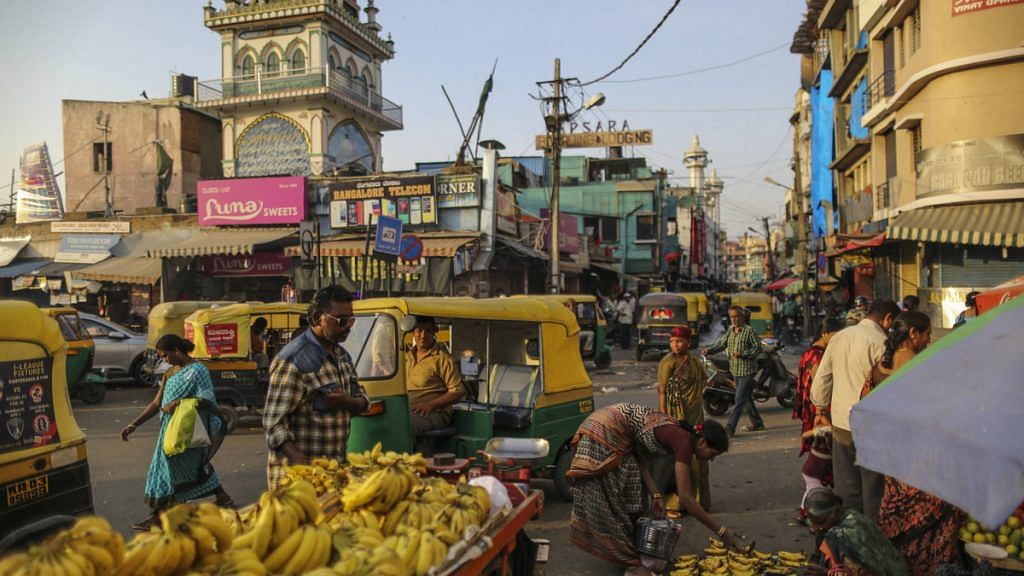Bengaluru: First it was coffee, then beer. Now, a delicacy of the fruit and dessert platter — and an essential part of the developing world diet — finds itself threatened by the climate change crisis: Bananas.
A study from the University of Exeter, UK, has found that climate change and global warming will slash banana yields — a prospect especially daunting for India, the biggest consumer and producer of the fruit.
The study was published this week in the journal Nature Climate Change.
Over the years, India and several other countries have benefited from a warming climate as temperatures became optimal for higher banana yields.
Researchers Varun Varma and Daniel Bebber studied banana yields in 27 countries that make up 86 per cent of global dessert banana production.
On average, nearly all of these countries have seen a positive trend in their banana yields starting from the early 1960s, as temperatures began to climb.
However, with the rise in temperatures still underway, the researchers predict that banana yields will drop drastically in some countries.
In India and Brazil (the fourth largest producer of bananas), there is expected to be a significant decline in crop yields.
But of the 27 countries which were a part of the study, all 10 countries in Africa as well as Ecuador (largest exporter of bananas) and Honduras are expected to experience a positive effect on yield in the upcoming years, as they are still cooler than optimal temperatures for banana cultivation.
“For these countries, yields are predicted to increase because the areas in which bananas are cultivated have not crossed the temperature optimum,” said Varma.
But despite the anticipated increase in yields for these nations, global gains in yield are expected to reduce drastically, completely disappearing in some parts of the world.
The banana is one of the top 10 crops in the world by area under cultivation and total yield.
Even so, according to the researchers, banana production is not well understood or studied in the context of climate change, as most studies tend to focus on food security, and thus grains like wheat and rice.
“Why bananas have not received much attention so far could be a combination of multiple factors,” Varma told ThePrint. “Banana is generally considered a fruit even though it can make up a large proportion of calories in some parts of the world, and its widespread and consistent availability across the world makes it appear to be under no threat.”
Also read: Half a degree in global warming temperatures can be the difference between life & death
India is largest producer
India is the largest producer of bananas in the world, producing 29.18 million tonnes in 2016, over double that of the second country on the list, China (13.31 million tonnes). While the bulk of its produce is consumed locally, India’s banana exports earned the country Rs 348.8 crore in 2018 alone.
According to Varma, after a large boost in yields over the past few years, a “dramatic reversal” is expected in the coming decade or two for Indian bananas. However, technology, he added, might help mitigate the impact.
“Our analysis suggests that technological improvements could largely mitigate the climate change-related losses. But, greater investment will be needed in the future if past year-on-year growth in yields are to be maintained to meet increasing demand,” he said.
Banana is routinely affected by diseases, but selective breeding and genetic technology could potentially provide a viable solution. However, adapting bananas to high temperatures would be significantly challenging. Indian banana farmers rely on it as a cash crop, and even small reduction in yields could lead to significant monetary loss.
The study did not factor in the added strain on yields because of extreme weather events and disease, which is likely to render the situation worse for Indian farmers.
By the year 2050, the world could potentially see a global banana shortage unless plantation methods are modified in the immediate future, according to the study.
Also read: Meat and dairy industries are abnormally quiet about their role in climate change
